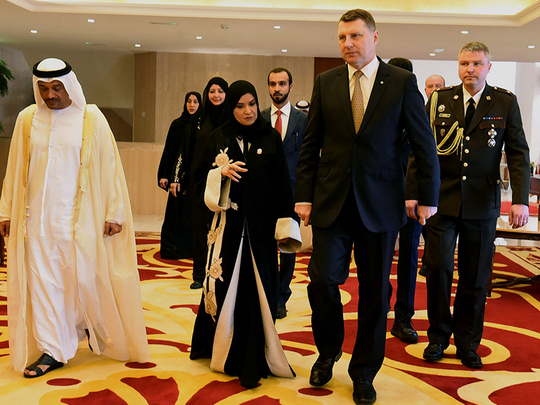
Abu Dhabi
Members of the Federal National Council yesterday Tuesday criticised the Ministry of Justice for poor performance in delivering justice, emiratisation of judges and.providing information to clients.
Marwan Bin Galita, First Deputy Speaker of the House, wanted to know why lawsuits took so long to settle in federal courts, compared to local courts across the country.
“Whereas the clearance rate of cases in federal courts is 88 per cent, it is as high as 97 per cent in local counterparts. A lawsuit takes an average of 58 days to settle in federal court, whereas the time a lawsuit takes in Dubai courts is just 21 days. Lawsuits take long time in federal courts, and parties who expect a case to be over in a few weeks are usually disappointed. So, why does a lawsuit take so long?,” Bin Galita, a member from Dubai asked.
Sultan Saeed Al Badi, Minister of Justice, told the House, clearance percentage of cases in federal courts had increased to 89 per cent last year from 87.6 per cent in 2015 and each judge takes up not more than 35 cases a month. “The excellent performance of courts also resulted in decreasing the backlog of cases from 67,455 in 2015 to 65,429 last year,” Al Badi told the House as it debated the policy of the ministry to deliver justice.
Concerning Emiratisation, the minister said Emirati judges represent 55 per cent, while Emirati workforce in general represents 73 per cent in 22 federal courts. Across the country Emiratis represent 97 per cent in prosecution and 81 per cent in legislation and fatwa departments, he said.
Al Badi added that the ministry plans to increase Emirati judges to 71 per cent by 2019.
Constitution change
Meanwhile, Gulf News has learnt that the UAE’s Constitution is to undergo some amendments to enshrine complete independence of the judiciary and equality before the law.
Members of the council demanded that the constitutional changes introduced to provide for full financial and administrative autonomy for the judiciary and to establish the Federal Judicial Council be enforced.
The members argued independence of the judiciary entails a supreme judicial council with members from the federal bench and being mandated to decide on all matters relating to the judiciary, judges and judicial policies and legislations.
The changes entail that neither the Cabinet nor the Minister of Justice will have any authority over the Federal Judicial Council, to secure full independence of the judiciary from the executive authority.
Outlining the strategic goals of the ministry for the next five years, Al Basdi said the plan aims to achieve the UAE 2021 vision, satisfy customers and employees, achieve justice leadership, and provide creative legal and judicial services. It also aims to develop leading legislations to guarantee the rule of law, the protection of rights and freedoms, in compliance with the UAE leadership’s directives and ambitions to be one of the world’s best countries.
Al Badi said the plan will adopt the best laws and legislations to cope with international trends and internal developments, comply with the nation’s traditions and achieve the needs and future aspirations of citizens, as well as to attract, train and encourage the best human resources in the judicial field, while working in a creative environment for implementing laws and legislations.
Al Badi added the strategic goals also include contributing to the drafting of laws that fulfil the community’s needs, complying with developments and foreseeing the future, promoting a specialised justice system based on knowledge and organisational excellence that guarantees its independence and development, while establishing an advanced penal system that can help preserve the security of society, the protection of individual rights and public access to justice. It also aims to promote the ministry’s local and international partnerships and raise awareness of legal knowledge, while offering high quality, transparent and efficient administrative services.












